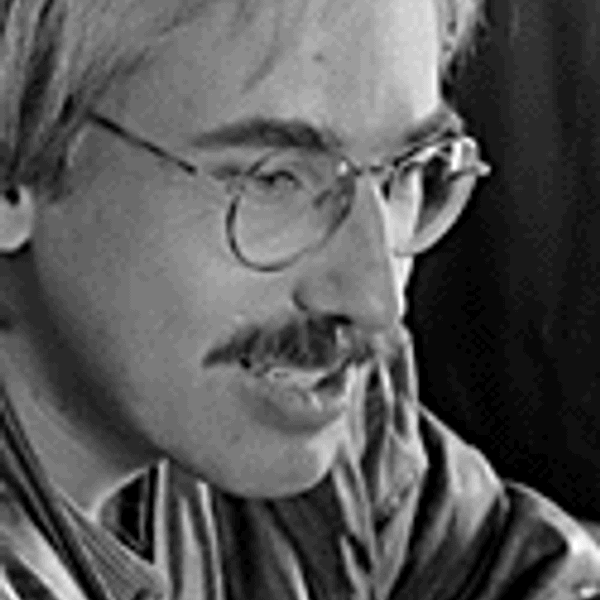Art by Jin Suk
AGNI at Twenty-Five
When Valerie Duff, our managing editor, was one year old, AGNI had just reincarnated as a literary magazine: twenty-five years later, the vectors converged. In that quarter of a century, several waves of writers have broken into print through AGNI’s pages, among them some who are widely acknowledged as the best of their generation (you know who you are). We make too much of numbers and age, but there are milestones worth recognizing and the twenty-five-year mark seems by consensus one of them. We celebrate it with this special issue, for which older writers, friends of the magazine from various stages in its history, chose work by new writers who’d never appeared in a national publication. This is how the editorial chain of being at its best has always worked—as J. Laughlin, dean of American editors, will certainly testify. But the exchange of energies and intelligence needs to be reciprocal. Young writers who fail to discover their literary ancestry are not likely to develop past the first spurt. What an artist desires, as Derek Walcott puts it, is continuance; and the exchange must move in both directions at once.
Two features in particular should be noted. The first is the conversation between Saul Bellow and critic Sven Birkerts. One would only have wished it longer: here is a convergence prepared for by years of fertile reflection and boisterous admiration—Mr. Bellow can’t possibly know the hours this writer spent some decades ago with the young Birkerts discussing Charlie Citrine’s notions about that huge operation, America: Humboldt’s Gift appeared around the time AGNI moved to Boston and the literary adventure began in earnest.
The other is the interview with Charles Rowell, remarkable editor of the important journal Callaloo, conducted by the poet Thomas Sayers Ellis. It is the second in our ongoing series of interview with editors, whose role as middleman between the writer and the market is often poorly understood. The position, like everything else in publishing, is changing. According to the hype, the book business remains nearly as bullish as Wall Street, but there’s no denying that literature, as Don DeLillo recently said of the novel, “may seem to be wearing an expiration date that takes effect tomorrow.” Consider, for instance, the state of reviewing: once estimable vehicles such as the Post’s Book World are so confused about their identity, they devote fully a quarter of their pages to commentary on celebrity bios and books about other media. In such a climate, it seems to us vital that writers and younger editors know that they are part of a tradition well worth preserving.
One reason the magazine has thrived over the last decade is thanks to the support of Boston University, whose administration and staff have provided practical help in so many areas, from maintaining office space to mailing out issues, to providing major assistance in grantsmanship. Their efficiency and collegiality deserve our abiding gratitude.
Dozens of extraordinary young people have passed through our offices as interns and managing editors and readers—their presence, as well as their contribution, reminds us that belles lettres in America in the last years of the century remain a going concern: to them, again, our thanks.
Several arts organizations—the Lannan Foundation, the Massachusetts Cultural Council, and especially the National Endowment for the Arts—have kept us alive in lean days. The NEA has done an enormous amount to help even the playing field financially—without it, the production and distribution of literature would be far more narrowly pursued.
The pursuit of literature requires passion, and a kind of commitment that borders on the religious. Solitary in its practice, its ultimate meaning is, however, communal. Every vigorous page of prose and each poem that’s spiked with life intensifies and enlarges us. Finally, then, I’d like to dedicate this anniversary issue to my colleagues, in the University—in the English and Creative Writing Departments and at the Boston Playwrights’ Theatre—and in the wider community, whose exemplary devotion to the literary arts, whose passion, has been not so much a support as a spur, a steady incitement to growth.
—15 September 1997

Askold Melnyczuk
Askold Melnyczuk—the founding editor of AGNI, for which he received the PEN/Nora Magid Award for Magazine Editing—is the author of four novels and a book of stories. What Is Told (Faber, 1994), was the first commercially published work of fiction in English to highlight the Ukrainian refugee experience and was named a New York Times Notable. Other novels have been selected as a Los Angeles Times Best Book of the Year and an Editor’s Choice by the American Library Association’s Booklist. His most recent book is a collection of stories, The Man Who Would Not Bow. His selected poems, The Venus of Odesa, is forthcoming from Mad Hat in summer 2025. A book of selected nonfiction, With Madonna in Kyiv: Why Literature Still Matters (More than Ever), will be published by Harvard University Press in 2026. He has edited a book of essays on the St. Lucian Nobel Prize–winning poet Derek Walcott and is coeditor of From Three Worlds, an anthology of Ukrainian writers from the 1980s generation. He’s the recipient of a Lila Wallace-Reader’s Digest Writers Award for fiction, the Heldt Prize for translation, and the George Garret Award from AWP for his work in the literary community. Individual poems, stories, essays, and translations have appeared in The New Yorker, The Paris Review, The Gettysburg Review, The Missouri Review, and elsewhere. Also the founder of Arrowsmith Press, he has taught at Boston University, Harvard, and Bennington College and currently teaches at the University of Massachusetts Boston. (updated 5/2025)
